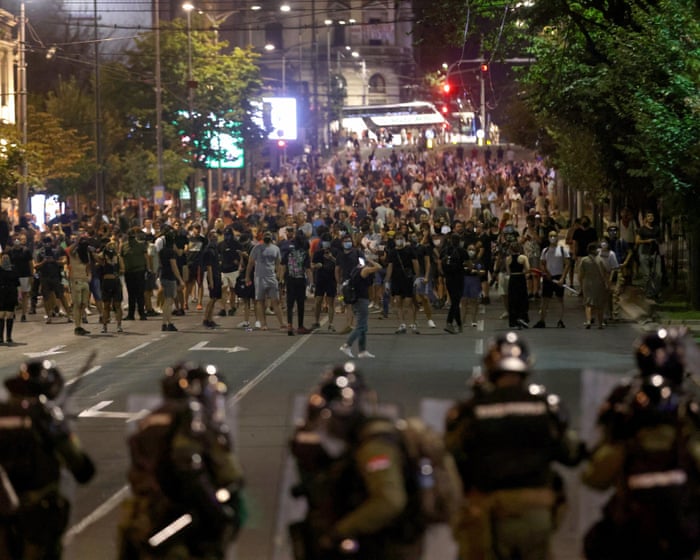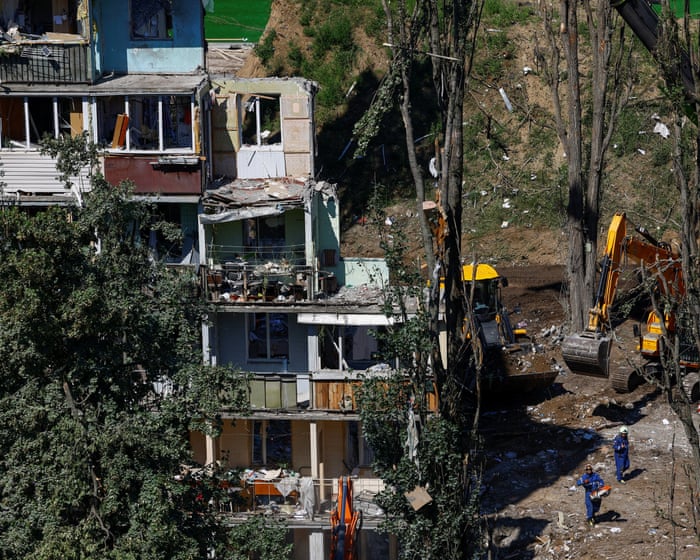Over the past six months, Donald Trump has been accused of pushing the largest democracy in the Americas toward authoritarianism. Now, the U.S. president appears determined to weaken the region’s second-largest democracy as well.
Since early July, Trump has launched an unprecedented attack on Brazil’s institutions, imposing 50% tariffs on imports from the country and sanctions on a Supreme Court judge—partly in retaliation for what he called the political persecution of his ally, Jair Bolsonaro, who is on trial for allegedly orchestrating a failed coup.
“Rarely since the Cold War has the U.S. interfered so aggressively in a Latin American country,” The Economist noted last week.
“I feel for the Brazilians,” said Steven Levitsky, a Harvard political scientist and co-author of How Democracies Die, a bestselling book on democratic decline. “This is a deeply authoritarian political force causing massive harm to my own country’s democratic institutions—and I wish it stopped there. It’s painful to see the U.S. government damaging other democracies too.”
The U.S. has a long, troubled history of meddling in Latin America, from CIA-backed coups to military interventions. But Levitsky said he had never seen trade policy weaponized like this: “Brazilians have spent generations building the strongest, most democratic system they’ve ever had… and this reckless attack on their institutions is heartbreaking.”
Trump’s attempts to help Bolsonaro evade justice—by pressuring Brazil’s government and Supreme Court—have energized the former president’s supporters. They see Trump as Bolsonaro’s best hope of avoiding prison when the court delivers its verdict in the coming weeks.
But Trump’s interference has angered millions of Brazilians across the political spectrum, who view it as an unacceptable foreign assault on their democracy—just 40 years after it was restored following two decades of dictatorship.
“In the old days, they’d send in the Marines. Now they use tariffs,” said Rubens Ricupero, a former finance minister and ambassador to Washington, predicting Trump’s actions would spark a wave of anti-American nationalism.
Marcelo Rubens Paiva, a writer and democracy activist whose father was killed by Brazil’s 1964-85 dictatorship, called Trump’s interference “utterly despicable”—the work of “a man who thinks he’s Napoleon, demanding the world kneel before him.”
Analysts disagree on Trump’s motives for targeting Brazil’s institutions and elected government, which the White House recently labeled a threat to U.S. “national security, foreign policy, and economy.”
Some believe he wants to expand Latin America’s pro-Trump right-wing alliance—currently led by Argentina’s Javier Milei and El Salvador’s Nayib Bukele—by reviving Bolsonaro’s fading career and possibly returning him to power in next year’s election.
Others see Trump’s pro-Bolsonaro campaign as cover for his real goals: advancing U.S. economic interests, especially for tech giants eager to avoid regulation in the world’s fifth-largest digital market.
Levitsky offered a simpler explanation. Trump’s actions, he said, reflect those of a “classic 20th-century tinpot dictator” like the Dominican Republic’s Rafael Trujillo or Nicaragua’s Anastasio Somoza.
“Trump governs the same way. For him, the treasury, trade policy, foreign policy—it’s all for personal gain.”For them, the army represented personal security. This reflects Trump’s approach to governance—using policy tools for his own personal and political gain,” Levitsky said.
“There’s no economic strategy here, and clearly no foreign policy strategy either. But Bolsonaro’s family has managed to get close to Trump, convincing him that Bolsonaro’s situation mirrors his own in 2020 after losing the election to Joe Biden.”
“Trump falsely believes he was the victim of a witch hunt, and Bolsonaro’s sons have persuaded him that Bolsonaro is facing the same treatment. Now, Trump is exploiting U.S. foreign policy—tragically and pathetically—to pursue these personal whims,” Levitsky added.
Experts doubt Trump’s efforts will succeed. Bolsonaro, already barred from running for office until 2030, is likely to receive a severe sentence once his coup trial concludes. While Bolsonaro denies the charges, he has admitted exploring “alternative ways” to prevent Luiz Inácio Lula da Silva, the winner of Brazil’s 2022 election, from taking office.
Paiva believes Trump wanted Bolsonaro to enjoy the same legal immunity he did after attempting to overturn the 2020 election results. But the plan seems to be backfiring.
Early indications suggest President Lula has been invigorated by this clash with Trump, while the Bolsonaro family—widely blamed for pushing Trump to target Brazil’s economy and institutions—has faced public backlash. A recent editorial in the conservative Estado de São Paulo newspaper stated: “Bolsonaro’s name is now etched among the greatest traitors this nation has ever known.”
“I think Bolsonaro has buried his political career,” Paiva said.



